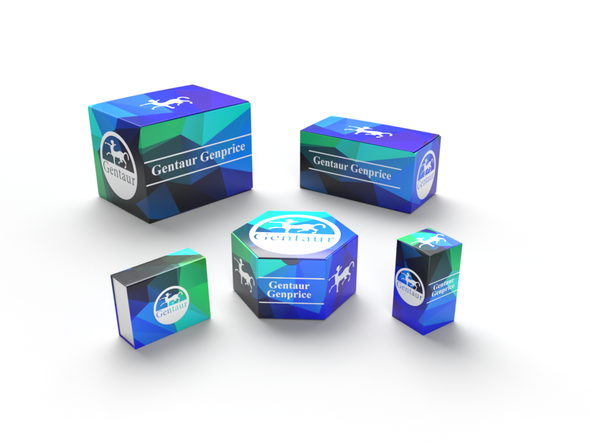740
Human Probable histone-lysine N-methyltransferase PRDM7 (PRDM7) ELISA Kit | AE26096HU
- SKU:
- 740-AE26096HU
- Availability:
- Usually ships in 5 working days
Description
Human Probable histone-lysine N-methyltransferase PRDM7 (PRDM7) ELISA Kit | AE26096HU | Gentaur UK, US & Europe Distribution
Species Reactivity: Human (Homo sapiens)
Abbreviation: PRDM7
Alternative Name: MGC129525; PFM4; PR-domain family protein 4
Application: ELISA
Range: Request Information
Sensitivity: Request Information
Intra-Assay: ≤5.6%
Inter-Assay: ≤9.8%
Recovery: 0, 95
Sample Type: Serum, Plasma, Other biological fluids
Detection Method: Sandwich
Analysis Method : Quantitive
Test Principale: This assay employs a two-site sandwich ELISA to quantitate PRDM7 in samples. An antibody specific for PRDM7 has been pre-coated onto a microplate. Standards and samples are pipetted into the wells and anyPRDM7 present is bound by the immobilized antibody. After removing any unbound substances, a biotin-conjugated antibody specific for PRDM7 is added to the wells. After washing, Streptavidin conjugated Horseradish Peroxidase (HRP) is added to the wells. Following a wash to remove any unbound avidin-enzyme reagent, a substrate solution is added to the wells and color develops in proportion to the amount of PRDM7 bound in the initial step. The color development is stopped and the intensity of the color is measured.
Product Overview: Progressive diversification of paralogs after gene expansion is essential to increase their functional specialization. However, mode and tempo of this divergence remain mostly unclear. PRDM7 underwent major structural rearrangements that decreased the number of encoded Zn-Fingers and modified gene splicing. Through internal duplication and activation of a non-canonical splice site (GC-AG), PRDM7 can acquire a novel intron. PRDM7 is a transcription factor of the PR-domain protein family. It contains a PR-domain and multiple zinc finger motifs. Transcription factors of the PR-domain family are known to be involved in cell differentiation and tumorigenesis. Alternative splicing results in multiple transcript variants encoding distinct isoforms.
Stability: The stability of ELISA kit is determined by the loss rate of activity. The loss rate of this kit is less than 5% within the expiration date under appropriate storage condition. The loss rate was determined by accelerated thermal degradation test. Keep the kit at 37°C for 4 and 7 days, and compare O.D.values of the kit kept at 37°C with that of at recommended temperature. (referring from China Biological Products Standard, which was calculated by the Arrhenius equation. For ELISA kit, 4 days storage at 37°C can be considered as 6 months at 2 - 8°C, which means 7 days at 37°C equaling 12 months at 2 - 8°C) .










